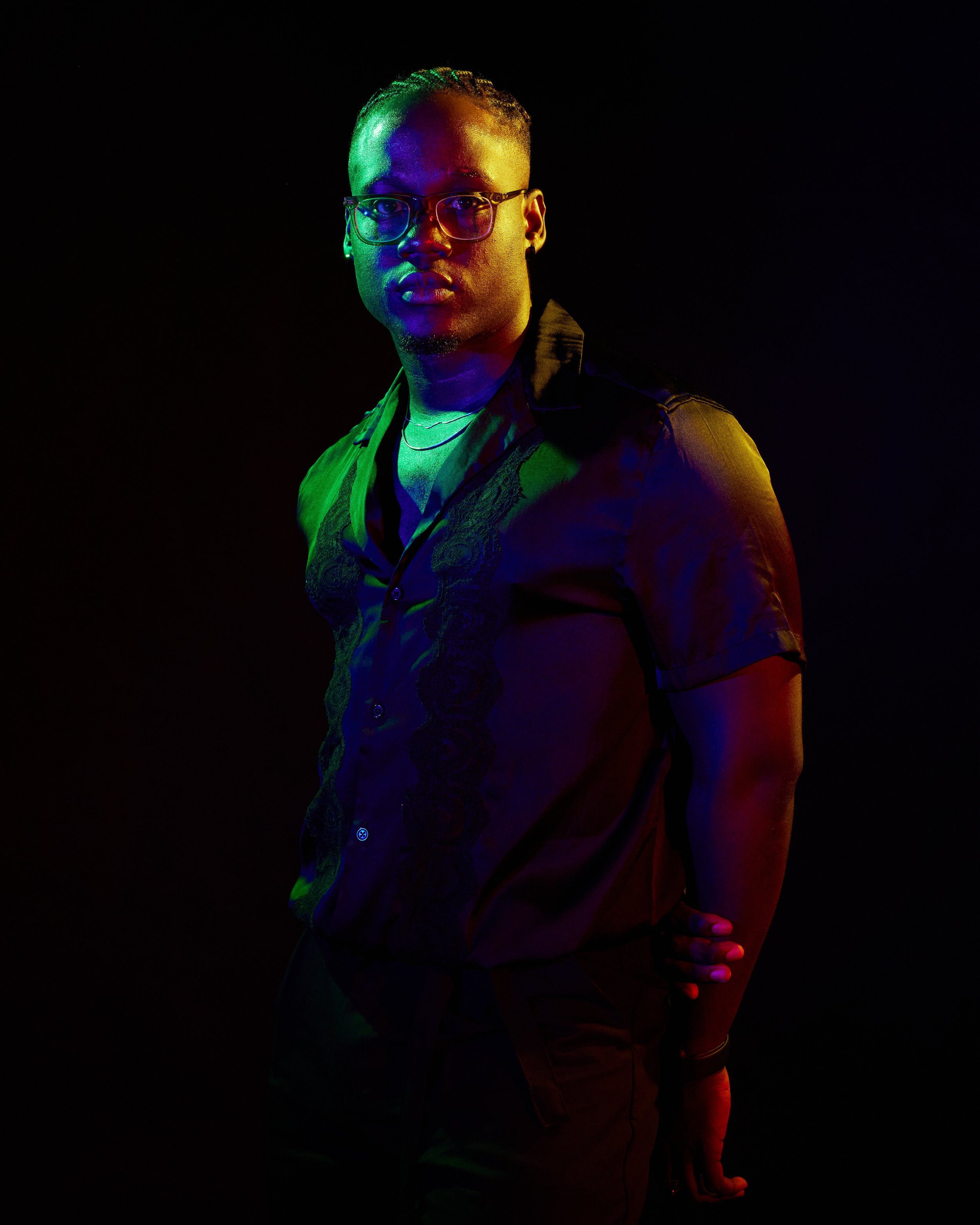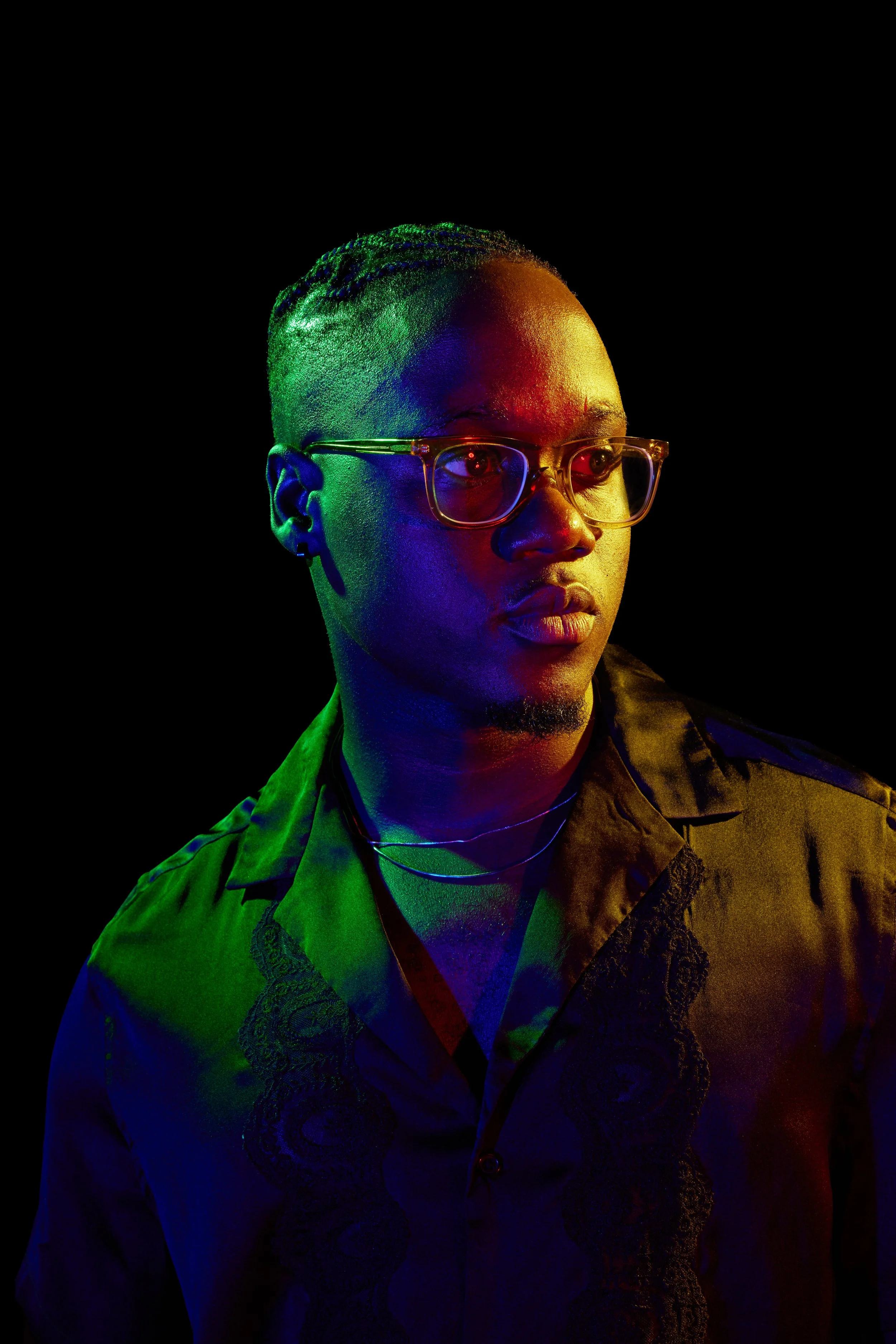Now Presenting: OTV's New Artist Development Coordinator - Rasheed Peters
OTV has wanted to build capacity and expand the team for years, but we believe in slow intentional growth and setting folks up for success. We’re thrilled to support that we finally have the resources and space to do so.
Meet our newest hires, Artist Development Coordinator Rasheed Peters and Marketing Coordinator Mac Do. As one of their first projects, they interviewed each other. The following is the transcript of Rasheed’s interview led by Mac.
Photo credit: Paul Octavious
Can you introduce yourself and share a little bit about your journey that led you to OTV?
I’m Rasheed Peters, I’m an experimental filmmaker, installation artist, nonfiction storyteller, producer, multi-hyphenate of all those things. I’m based here in Chicago, but originally born and raised in Jamaica. I moved to the states in 2016 to pursue education. Since then I’ve just been on a journey to explore my creative passion and my love for storytelling. It’s something that was ingrained in me from when I was super young by both of my grandmothers. They’re big storytellers. So it’s something I’ve always held on to. Over the years I’ve jumped back and forth between different fields. I was working in business advertising and marketing, then in fashion for a while. But I always found myself being drawn back to storytelling and the creative arts, and that’s where I really settled. I would say, in this chapter of my life as an artist, a big thing about my practice is not only making art, but also supporting people who make art as well. That’s what really drew me to this role of artist development coordinator and OTV
What about the artist development role interested you?
What drew me to OTV was it just felt like, my first instinct is to say safe space. But I like the term that we use internally, which is brave space. It felt like a brave space, you know, like we’re people regardless of your demographics, your identifiers, or how you navigate the world. You kind of show up and be yourself, unapologetically. And that’s something I haven’t really experienced, especially in a work setting or creative setting. Especially doing nonfiction documentaries where it’s a lot of, you know, cis white people, especially men, who make the rules and it gets boring and very restrictive. And I’ve never been one, especially creatively, to work in that way. I’m always asking questions and pushing boundaries because my existence in this world, my existence in this country, has always been that. And that really feeds into my practice. So I really wanted to be in a space where I could just show up and everyone could be on the same page. And it’s really beautiful to be in this space and to be in the role of Artist Development Coordinator and see the possibilities of what it really means to support artists who are up and coming.
I still consider myself to be an emerging artist and I know when I just started it was rough in these streets to navigate, especially independently. I just know how big of a difference it would have made if I had help, someone who I could turn to, and resources outside of just financial resources. But also mental resources and care resources. And this role is just really aligned with providing all of that. I think it’s such an important and beautiful thing at the same time. So I’m very excited about the role and to just be in it and see through and help build up the queer community.
I recently completed my MFA in documentary media at Northwestern, and part of that master’s program is teaching. So I taught a few quarters, and it’s always been something I’ve been interested in. Fun fact, my name Rasheed means thinker and counselor. Shoutout to my grandma, she knew long before me.
I feel like there’s a need for more people like us in academia and education, and it’s always been an interest of mine, helping people develop their learning is just super exciting.
Can you share a little bit about your art practice? And do you have any personal projects you’re currently working on? Doesn’t have to necessarily be film related but it can be!
Photo credit: Paul Octavious
I’m a video maker, so I work in the moving image medium. I do films in a traditional single channel and installations in multi-channels. I had a studio art practice that was a minor in my undergrad years. So I really try in my practice to blend the two together, just really push the boundaries of film and to tell stories that don’t normally get told in the mainstream. My work, I like to say, is also focused on the mundane things. I hold the view that the radical is in the mundane. The things we normally wouldn’t see as significant or having value, like everyday conversations you have with your mom or grandma, or your partner. Or you know, the process of cooking. Stuff like that. I like to see the things that under the surface seem kind of boring and regular, and really show how radical that is, especially for people of color and other marginalized communities. So that’s really the focus of my practice.
I’m not working on anything currently. I have a few things in development, but I just finished a really big project, my most significant project of the last few years. It was a multi-channel installation called “Dead Yard” that was about death, grief, and mourning, to really take a step back to look at how we process loss and grief in our society. I used the backdrop of my family so it’s kind of rooted in my Jamaican culture and traditions. That was up for a few days here in Chicago. But the next thing that I’m working on that I’m really excited about is a project called “Ice Ice Baby”. I’m a product of immigrants. I’m an immigrant myself, so that’s something that I’m very passionate about, the immigrant experience and visa issues. This project is basically going to be like a portrait of ice vending machines all across Chicago that say “ice”. It’s like a play on the word ice and also immigration and customs enforcement and just looking at where most of those vending machines are located, and also is an environment for undocumented immigrants to look for work as well. So just like, finding the parallel between you know, ice and I.C.E.
You can follow my website rasheedpeters.com or follow me on instagram @rs.peters to see my projects.
Tell me about your favorite movie and what kind of media/stories you’re drawn to.
Photo credit: Paul Octavious
So, my favorite movie of all time, it’s a documentary called “Time” by Garrett Bradley. It’s streaming on Amazon Prime. It’s a story about the incarceration system here in the United States. And I love this particular take on it because a lot of these stories exist in multiple forms. It’s a popular topic that people talk about, and rightfully so. But I feel like a lot of those takes tend to be very analytical, and you have that voice of God who’s like, I am the expert on this type of thing. But “Time” instead of being driven by the more mechanical parts of the story, really delves into it from an intimate level perspective. We’re seeing the effects and remnants of this system on the family who is on the outside. The father of the family is in the system. So we’re following everyone and we’re seeing the emotional and tangible impact of this prison system on black families. And I think it’s just a beautiful telling of the story.
I tend to be drawn to nonfiction stories. Especially when they’re about people who you don’t normally tend to see represented in popular media. Even fiction that’s based on a true story, I eat it up! Or if some element of it is non-fiction, or anything that’s really just experimental. I’m always going to support the person who’s trying something new.
As an artist, do you collect anything?
There are two things that come to mind. The first one is kind of fun, but I love fridge magnets a lot. Whenever anyone travels abroad I ask them to bring back a fridge magnet. And then relating it back to my artistic practice as well, I collect TikTok videos. I have another ongoing project called “I See you See Me” and it’s basically a project where I accumulate TikTok videos that I come upon based on a common theme and then edit them together like a composition, collage style.



